Istanbul 2022
Between March and May 2022, the effort failed.
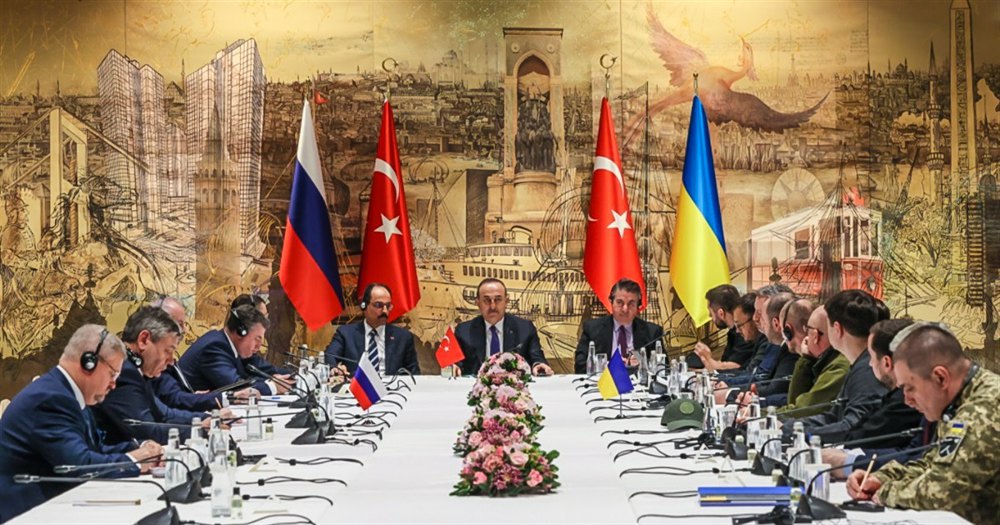
Negotiations with the Russians had been ongoing almost since the first days of the full-scale invasion. Mykhaylo Podolyak, a member of the negotiating team and advisor to the Head of the Presidential Office, repeatedly stated that Ukraine’s position in the dialogue with Russia remained unchanged: a ceasefire, withdrawal of troops and strict security guarantees. The negotiators also hinted that the parties were close to agreeing on a meeting between President Zelenskyy and President Putin. As we can see, the situation has changed little in more than three years.
Even after the tragedy in Bucha became known, Volodymyr Zelenskyy reiterated his willingness to meet with Putin. He noted that it was impossible to forgive the actions of the Russian military in Ukraine. “Every such tragedy, every such Bucha will hit you right in the face with regard to certain negotiations. We still need to find opportunities for such steps,”Zelenskyy said.
On 17 May 2022, Mykhaylo Podolyak confirmed the Russian side’s statement that the negotiation process between Ukraine and Russia had been suspended. It was later reported that talks were suspended in the political and diplomatic sphere, but continued on humanitarian issues – namely, prisoner exchanges, humanitarian corridors and evacuations.
In July 2022, however, an agreement with Russia was reached – not directly, but through the mediation of Turkey and the United Nations. It concerned the issue of grain exports, which had been blocked by Russia. Exports were resumed from three Black Sea ports. Russia, at the time, promised to allow access to these ports and not to attack ships carrying grain.
In October 2022, Volodymyr Zelenskyy issued a decree stating that it was impossible to negotiate with Putin. As it turned out recently, the decree did not apply to Zelenskyy himself, and he made use of this by declaring his readiness to meet with Putin in Istanbul.
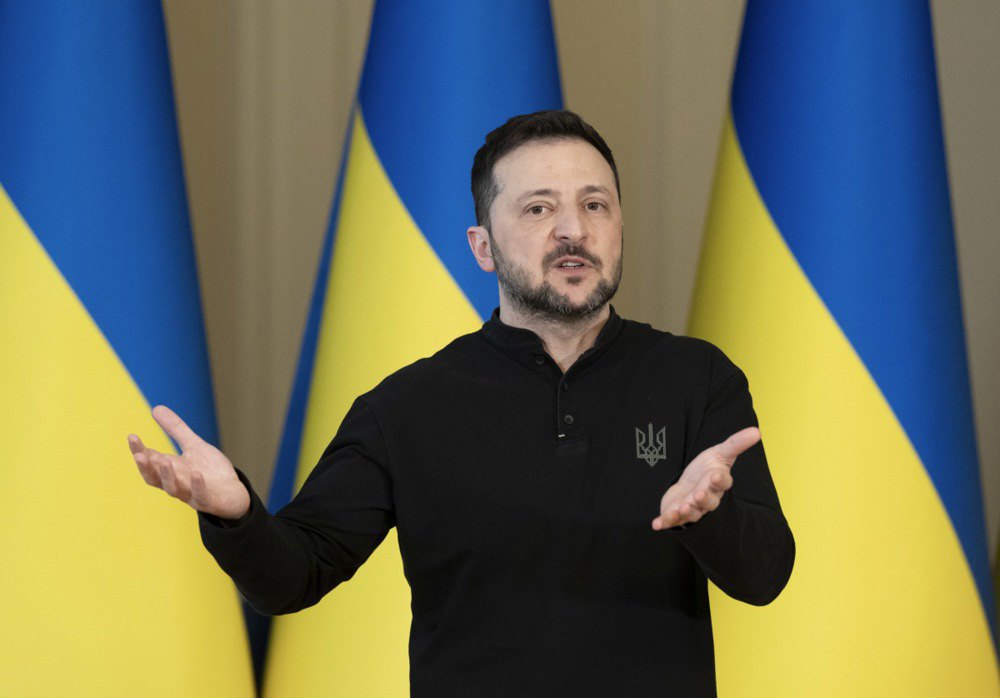
Two years later, The New York Times published drafts of three documents that Ukraine and Russia allegedly discussed in Istanbul, including: a draft peace agreement dated 17 March 2022 (the English translation of which Ukraine provided to Western governments at the time), a communiqué following consultations in Istanbul on 29 March 2022, and a draft agreement dated 15 April 2022.
The first draft, dated 17 March, was essentially an ultimatum from Russia. It stipulated that Crimea would remain under Russian occupation, as would the occupied parts of Donetsk and Luhansk Regions. At the same time, Ukraine was to confirm its non-aligned status, refrain from deploying foreign military bases and contingents on its territory, and lift all restrictions on the use of the Russian language. Furthermore, Ukraine was expected to agree to reduce the size of its armed forces and weapons, and not to develop missile capabilities.
During the talks in Istanbul on 29 March – against the backdrop of certain Ukrainian successes on the battlefield – Russia relaxed some of its demands, the newspaper noted.
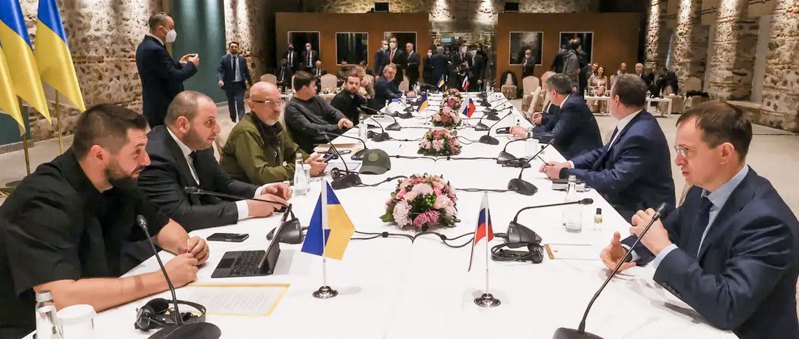
Earlier, Ukrainian negotiators told LB.ua that the main objective of Ukraine’s delegation was to buy time: “We had to gain time for our partners in the West to come to their senses and start making decisions that enabled us to survive,”one of them said.“That’s why we tried to engage the Russians in discussions of details that they constantly had to coordinate with Moscow.”
At the end of 2024, Volodymyr Zelenskyy said that the Istanbul agreements existed only in Putin’s “senile fantasies”. According to Zelenskyy, these were not agreements, but rather Russia’s ultimatum demanding Ukraine’s surrender.
Mysterious poisoning and murder
For the general public, the role of Russian oligarch Roman Abramovich in the 2022 negotiations remains a mystery. At the end of March, The Wall Street Journal reported that Ukrainian President Volodymyr Zelenskyy had advised US President Joseph Biden during a telephone conversation to refrain from imposing sanctions on the oligarch, as Abramovich could “prove to be an important mediator in negotiations with Russia”.
Mykhaylo Podolyak described reports about the alleged poisoning of members of the Ukrainian delegation and Abramovich during the talks as “speculative conspiracy theories designed to put pressure on the delegations and distract them from the substance in favour of the form.”
In April, the “poisoned” Abramovich even visited Kyiv.
Another unresolved episode was the murder of Denys Kireyev, a participant in the Ukrainian–Russian negotiations. Some details were revealed in an interview with Radio Svonoda by the head of the Defence Intelligence of Ukraine (DIU), Kyrylo Budanov.
According to Budanov, prior to his murder, Kireyev had been in his office before going to a meeting with representatives of the Security Service of Ukraine (SBU), accompanied by internal security officers. He was detained by Alpha unit officers 200 metres from the central SBU building. Kireyev was placed into a minibus, after which his body was found a few blocks away.
Budanov noted that he later spoke to the then head of the SBU, Ivan Bakanov, but received no answers to his questions regarding Kireyev’s death.
The DIU chief stated that he had known Kireyev personally since 2009 and firmly rejected any suggestion that Kireyev could have been working for Russia. Budanov also confirmed that Kireyev had been an employee of the DIU.
Let us hope that Istanbul 2025 will, at the very least, be free from such tragic incidents.
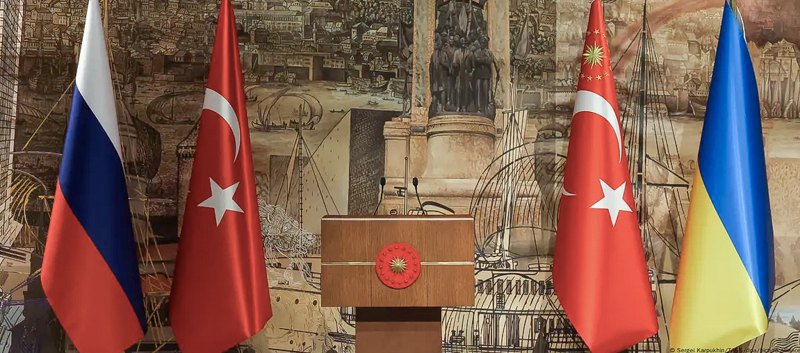
Istanbul 2025
In a conversation with Le Monde, the Head of the President’s Office, Andriy Yermak, stated that President Volodymyr Zelenskyy would travel to Turkey even if President Putin declined to make direct contact. This, he said, would send a clear signal to the international community that Russia does not seek peace and is not prepared for serious negotiations. According to Yermak, Ukraine remains open to dialogue, but only on the condition of a full and unconditional ceasefire.
This position is supported by Ukraine’s European partners, whose representatives are also expected to be present in Istanbul.
However…
On the evening of 14 May, Russian propaganda outlets reported that Russia had officially approved the composition of its delegation for the talks in Turkey.
The delegation will be led by Vladimir Medinskiy, an aide to the Russian president, who also chaired the Russian delegation during the 2022 negotiations. The following individuals will also participate:
- Mikhail Galuzin, Deputy Foreign Minister of Russia
- Igor Kostyukov, Chief of the Main Directorate of the Russian General Staff (Military Intelligence)
- Aleksandr Fomin, Deputy Minister of Defence of the Russian Federation
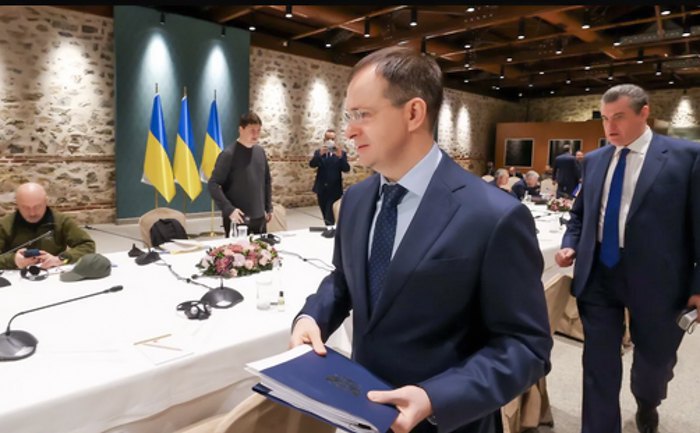
Medinskiy, Fomin and Galuzin were all involved in the 2022 Istanbul negotiations. Their inclusion indicates that Putin is adhering to his statement of 11 May regarding the “resumption of negotiations” in Turkey — talks which the Russian side claims were“interrupted”by the Ukrainian authorities in 2022.
Furthermore, the composition of the delegation makes it clear that Putin has rejected President Zelenskyy’s proposal for a personal meeting in Istanbul — a meeting that former US President Donald Trump had also planned to attend.
What’s next
US President Donald Trump will not travel to Turkey to take part in the talks between Russia and Ukraine. This was reported by Sky News, citing a US official, shortly after Russian President Vladimir Putin announced the composition of the Russian delegation.
A few hours earlier, Trump’s special envoy Steve Witkoff told reporters in the Qatari capital, Doha, that he and US Secretary of State Marco Rubio would attend the Russian–Ukrainian meeting in Istanbul not on Thursday, 15 May — the date proposed by Putin — but on Friday, 16 May.
It is not yet clear how Ukraine will proceed. In his evening address, President Volodymyr Zelenskyy stated: “Today we held several meetings with the team regarding the format in Turkey. I am waiting for Russia to arrive, and then I will determine what steps Ukraine should take.”







